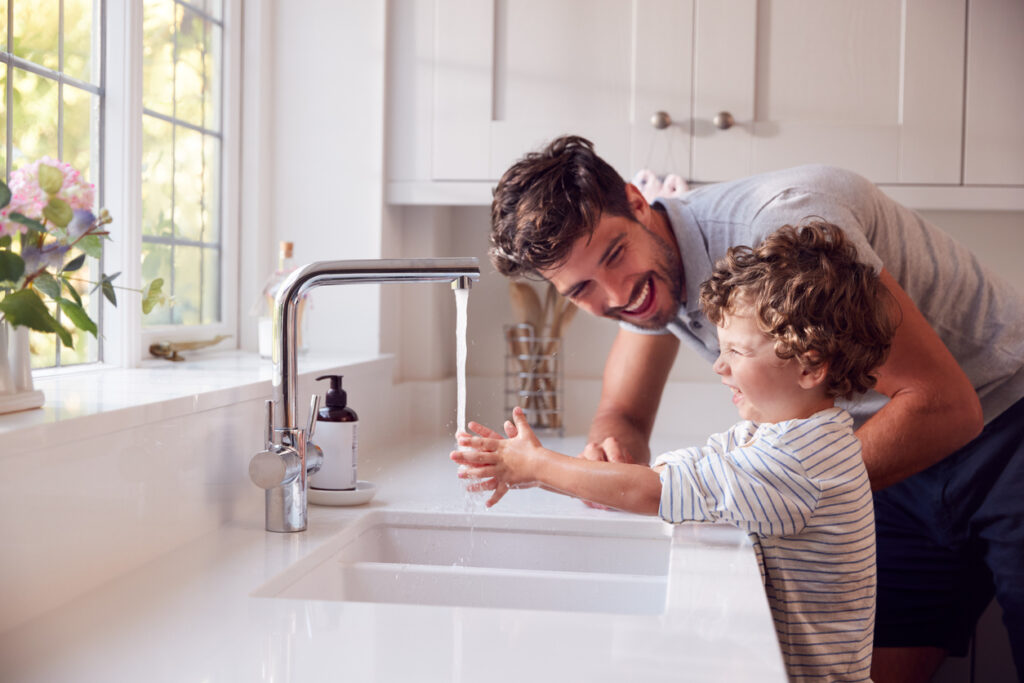
Water Softening vs Water Filtration
If you’ve been searching for ways to treat your water, you’ve likely heard water softeners and water filters being used interchangeably. While both are fantastic systems to have in your home, they are not the same and are designed to treat two different water issues. You may wonder then which type of system is preferred or if it is worth having both. The experts at Culligan Water are here to educate you on the difference between a water softener and a water filter and advise you on which could be best for you.
What is a Water Softener?
Water softeners, as the name implies, treat hard water to help keep it soft. An excess buildup of minerals like calcium and magnesium typically causes hard water. This can lead to issues like dry or agitated skin and mineral buildup in appliances. The lifespan of appliances can be significantly reduced, as they have to work harder to do their job. Water softeners most commonly work by using an ion-exchange method, effectively replacing hard water minerals with softer water minerals like sodium or potassium. If you’ve ever dealt with hard water, you can immediately feel the difference, as soft water helps you feel and look cleaner. Talk to our Culligan Water team to learn more about the benefits of water softeners.
Water Filters Explained
Water filtration systems specifically target bacteria or impurities in the water supply. These contaminants can affect the water’s taste and smell and cause health issues, depending on the type of pollutant. Water filtration can be achieved in many different ways, but an effective solution that Culligan Water employs is reverse osmosis, which is the use of a semi-permeable membrane that is small enough that only water molecules can pass through. Customers can choose to use water filtration for their whole house or a smaller system to filter just the drinking water. While water filtration systems can be used in any home, they are highly useful for homes in rural areas with higher levels of iron or sulfur in the well water. Call Culligan Water if you want free water testing to see what contaminants are in your water supply.
Water Treatment Methods Comparison
While both water softeners and water filters are effective in their respective designs, it is essential to understand that softened water does not necessarily mean filtered and vice versa. Water softeners will only target minerals like calcium and magnesium, while bacteria and other contaminants will be unaffected. Because of this, it is important to identify the water issues you want to address. If you’re mainly dealing with hard water symptoms like dry skin, spotty dishes, etc., then a water softener may be all you need. However, if you’re concerned about the types of contaminants that may be in your water or you are dealing with weird-tasting/smelling water, a water filtration system would be preferred. If you want to address both, Culligan Water of Oklahoma City always has the solution. Our whole house water filters can target both contaminants and minerals that cause hard water so you can get the purest water possible. Let our team know what you want to accomplish, and we can advise which of our projects would be best for you.
